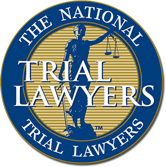- May 23 2024
- | Car Accidents

Contributory negligence is when a harmed or injured individual is partially responsible for their injuries. It is a legal principle applied when an individual is hurt or injured and this individual shares partial responsibility for the incident. Simply put, if you get injured in a car accident, for example, and played a part in what happened, the contributory negligence rule will point out that you are also partially responsible for your injuries. It could affect your ability to receive compensation.
Contributory negligence frequently emerges as a defense tactic in personal injury lawsuits. Attorneys representing the defendant, who is accused of causing the injuries, often contend that the claimant, that is, the injured party, shares responsibility for the incident. In most cases, the defendant would not want to compensate the claimant because they contributed to the accident.
However, if you, as the injured party, have a competent lawyer representing you, they would help you understand the doctrines and rules of contributory negligence, how your part in your injury will affect your case, and whether you will get compensation. Our highly skilled and qualified attorneys know how to determine contributory and comparative negligence. They will also look for the best possible ways to maximize your compensation.
If you or a loved one has been involved in an accident and was partially responsible for your injury, we can help. Our experienced attorneys will ensure you understand the best steps to take.
We have successfully secured numerous multimillion-dollar verdicts for our clients.
Why Hire Our Personal Injury Attorney in Reno?
Leverty & Associates Law has a team of attorneys who are experts in personal injury claims. Our attorneys are highly skilled and well-experienced in cases involving contributory negligence. We have a combined experience of more than four decades, and the knowledge we have gained so far has helped us with many clients who have found themselves in this situation. We can help you, too.
We will make your case our utmost priority. We will also advocate for you, fight for your rights, and guide you in making the best decisions.
Even if you are partly at fault for your injury, we can still represent you and work to get a favorable outcome.
Understanding the concept of contributory negligence
When you are involved in an accident, like a car crash, for example, and you incur damages that another party caused, you can successfully claim compensation. The other party’s insurance company would be the one to compensate you, but they would not want to pay more than they have to, and they might not even want to pay at all.
Insurance companies have adjusters look into what happened during the accident, to figure out whose fault it was. They do this because they want to limit what they pay to the damages caused by their client. The insurance company wants to spend as little as possible to keep their money and make a profit. Accordingly, they try to prove that their client wasn’t entirely at fault or that the other person involved in the accident was partly to blame.
When your car gets damaged in a car accident and you make a claim, if you didn’t do anything wrong, you can get compensation. However, if you did something that contributed to the damage, like running a red light or using a phone while driving, your case will be affected; this is contributory negligence. If you were negligent in the incident, no matter how minor your contribution to the accident was, your would not get compensated.
Each state has its own rules about contributory negligence. Some states strictly abide by the contributory negligence doctrine, while others do not. However, some states, like Nevada, felt that the contributory negligence rule was too harsh, so they softened it by adopting another rule — the comparative negligence rule.
In Nevada, even if the person who got hurt is partially responsible for the accident, they might still get some compensation, but it could be reduced based on how much they’re at fault.
How is fault determined in a contributory negligence case in Nevada?
In a contributory negligence case, the fault is determined based on the actions and behaviors of everyone involved in the accident. Determining fault can be complex and depends on the specific circumstances of each case. It involves analyzing the actions and responsibilities of all parties involved to determine who, if anyone, was negligent and to what extent.
The following are the factors taken into consideration when determining fault in contributory negligence cases:
Investigation
The incident that caused the injury would be investigated. Investigation involves gathering evidence like statements from witnesses, police reports, photographs of the scene, and statements from professionals, e.g., medical doctors.
The courts would then apply legal standards to determine fault. They examine whether each party involved acted reasonably and prudently in the situation. If someone didn’t act reasonably and their actions contributed to the accident, they might be considered partially at fault.
Comparative fault
In Nevada, comparative fault looks at how much each person involved in the accident contributed to it instead of just saying one person is entirely at fault or not at fault. This means that each party’s level of fault determines compensation. For instance, let’s say there’s a car accident, and the court finds out that the driver who got hurt was texting while driving.
But they also find out that the other driver ran a red light. In a comparative fault system, they would look at both drivers’ actions and decide how much each contributed to the accident. If they decide that the texting driver was 30% responsible and the driver who ran the red light was 70% responsible, their compensation is reduced by 30%. So, if they were supposed to get $10,000, they’d only get $7,000 because they were 30% at fault.
Get help from Leverty & Associates Law
At Leverty & Associates Law, we have highly skilled and competent lawyers who will give you all the legal support you need. When you come to us, we will dedicate our time and resources to help you get the most favorable outcome possible. Our initial consultations are free, so contact us at (775) 322-6636 (Reno) to schedule one.



 With his master’s in insurance law, Patrick routinely helps individuals and businesses who are having issues with their insurance company. He also has extensive experience with personal injury actions, complex tort actions, product liability matters, and class actions. Patrick Leverty is rated AV by Martindale Hubbell (the highest rating) and has been granted membership in the Million Dollar Advocate Forum, and Multi-Million Dollar Advocate Forum. Patrick Leverty has been certified as a Personal Injury Specialist by the State Bar of Nevada. [
With his master’s in insurance law, Patrick routinely helps individuals and businesses who are having issues with their insurance company. He also has extensive experience with personal injury actions, complex tort actions, product liability matters, and class actions. Patrick Leverty is rated AV by Martindale Hubbell (the highest rating) and has been granted membership in the Million Dollar Advocate Forum, and Multi-Million Dollar Advocate Forum. Patrick Leverty has been certified as a Personal Injury Specialist by the State Bar of Nevada. [ 



